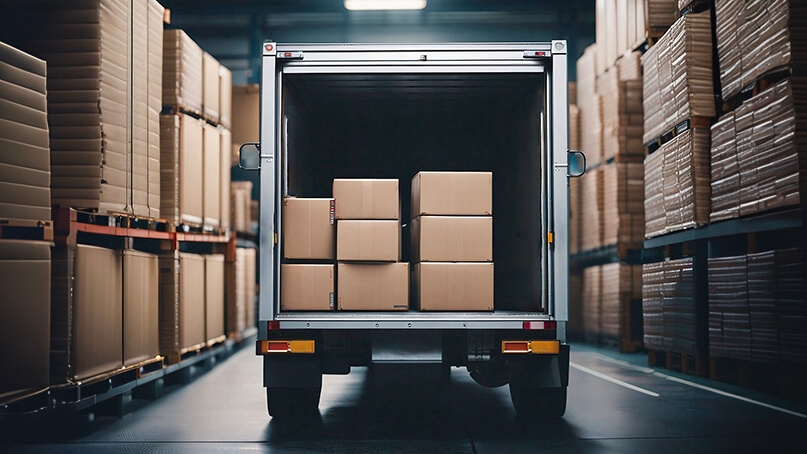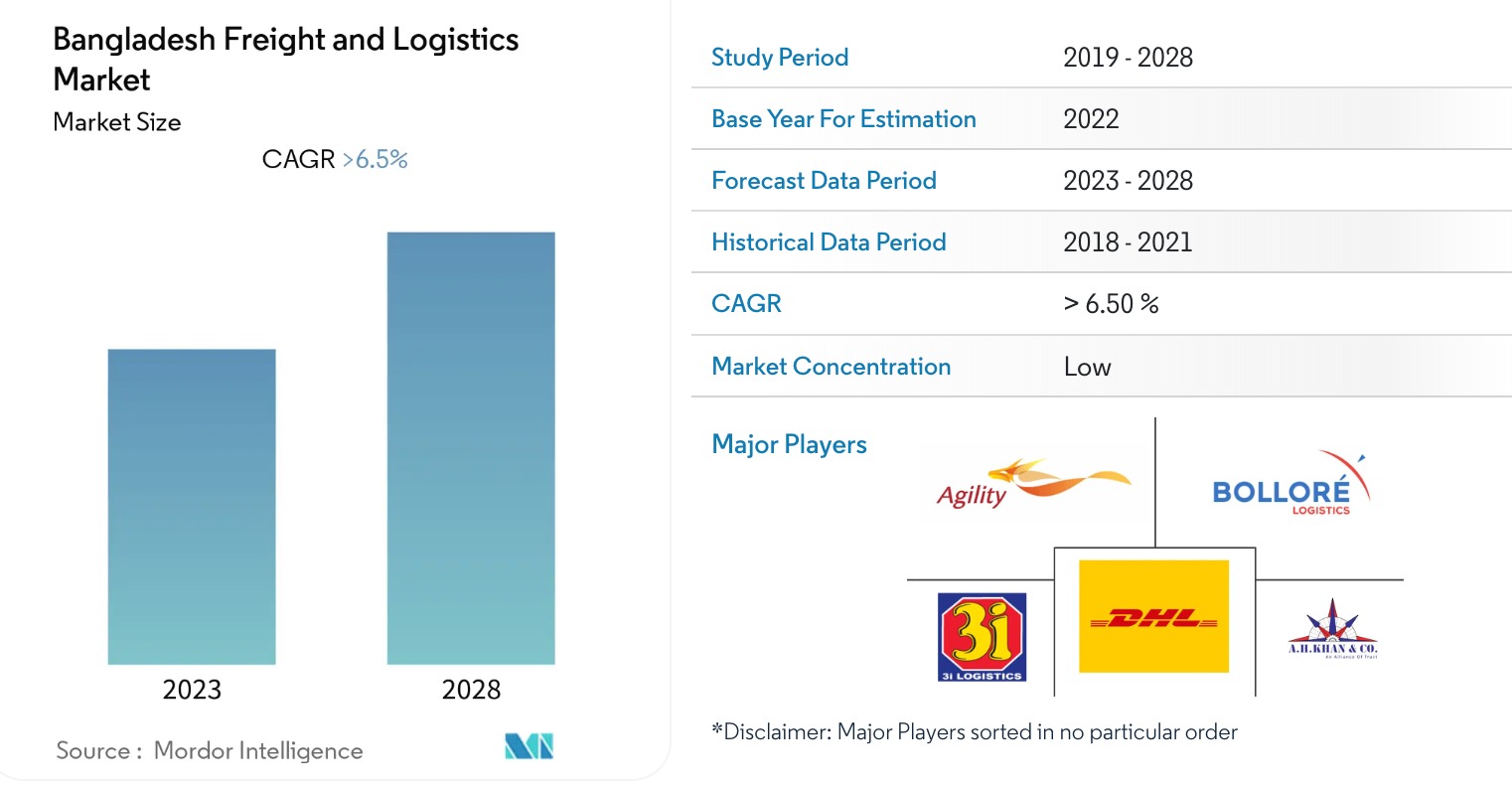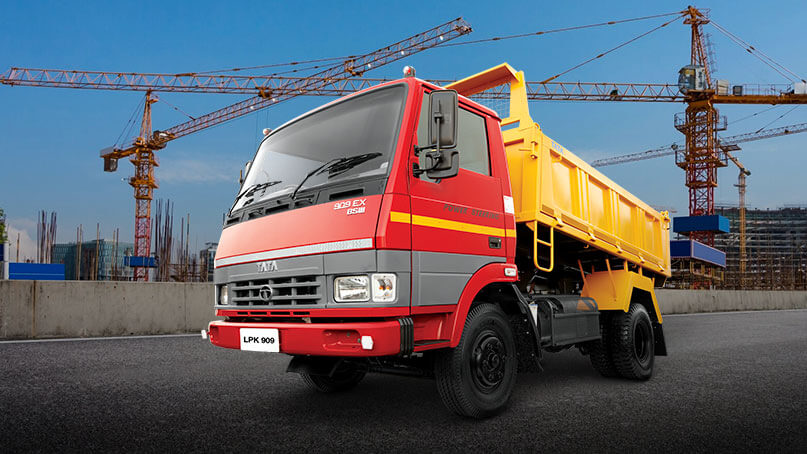15 Dec 2023

Future of Cargo Trucks: Trends & Innovations in Transportation Logistics
- Tata Motors
- 26 Sep 2023
- Commercial Vechicle
The reliance on cargo trucks for the smooth flow of goods & supplies is a fundamental cornerstone of Bangladesh's logistics ecosystem.
From bustling urban centres to remote corners of the country, these steadfast vehicles navigate the diverse terrains and intricate road networks, connecting businesses and consumers, facilitating trade, and driving economic growth.
In a study presented at an American Chamber of Commerce in Bangladesh (AmCham) session on logistics discourse, it was stated that effective logistics could boost Bangladesh exports by 20%. According to the predictions, Bangladesh’s logistics business will exceed $90 billion by 2025.
Their significance in preserving Bangladesh's economy is apparent given that the majority of commodities rely on these essential workhorses for transportation.
In this blog post, we will navigate through the dynamic landscape of transportation logistics, exploring a future that embraces innovation, challenges norms, and opens up thriving possibilities.

Source: Mordor Intelligence
Current Landscape of Cargo Truck Transportation in Bangladesh
Cargo truck transportation plays a pivotal role in Bangladesh's logistics landscape, serving as the backbone of goods movement across the country.
There is a rising need for dependable and efficient goods transportation as a result of the economy's fast growth and the expansion of the industrial sector.
Cargo trucks rule the freight transportation market, serving a variety of sectors including construction, industry, agriculture, and retail.
The road network in Bangladesh has witnessed remarkable improvements in recent years, facilitating smoother connectivity and enabling cargo trucks to navigate the country's diverse terrains.
Major highways, expressways, and arterial roads have been developed and upgraded, contributing to a more seamless flow of goods and a reduction in transportation bottlenecks.
However, despite the progress, the cargo truck transportation sector in Bangladesh faces certain challenges like:
- Congestion on major road corridors, particularly in urban areas, which leads to delays and inefficiencies.
- Infrastructure development, including the expansion of truck parking facilities & loading/unloading points, remains a priority to accommodate the growing number of trucks and streamline operations.
Efforts are also underway to formalize and regulate the industry to ensure safety standards, fair practices, and improved efficiency.
Overcoming challenges, investing in infrastructure, and embracing innovation is essential to ensure a robust and efficient cargo truck transportation system that meets the evolving needs of businesses and facilitates seamless logistics operations.
Technology-driven Trends in Cargo Truck Transportation
Let's explore some of the key technology-driven trends that are making an impact in cargo truck transportation.
Integration of Digital Platforms
Transportation for cargo trucks is being revolutionized by integrating digital platforms, which reduces processes and increases effectiveness.
To improve load planning, scheduling, and route optimization, advanced systems provide continuous communication and cooperation among stakeholders.
Recent industry statistics indicate that 73% of logistics experts think digital platforms provide visibility and openness, which helps decision-making.
Real-time tracking and monitoring technologies also give shippers exact visibility into their goods, cutting down on delays and raising customer satisfaction.
Internet of Things (IoT) and Telematics
Operations for freight trucks have altered as a result of the Internet of Things (IoT) and telematics. Trucking businesses may collect useful information about vehicle performance, fuel usage, and driver behavior by utilizing IoT sensors and telematics systems.
By using this information, businesses may improve driver safety, find potential for fuel savings, and optimize fleet maintenance schedules.
According to recent research, telematics and IoT technology adoption has reduced fuel expenditures by 15% and increased fleet efficiency by 12%.
Artificial Intelligence (AI) and Data Analytics
Artificial Intelligence (AI) and data analytics are driving data-driven decision-making in cargo truck transportation. AI algorithms can analyze vast amounts of data to provide insights into route optimization, traffic patterns, and predictive maintenance.
Companies may optimize delivery schedules, save fuel costs, and boost overall operational effectiveness by utilizing AI and data analytics.
Industry studies show that AI-powered optimization algorithms may increase delivery accuracy by 30% while cutting logistics expenses by up to 20%.
Sustainable Innovations in Cargo Truck Transportation
Let's explore some of the key sustainable innovations shaping the industry.
Adoption of Electric & Hybrid Trucks: Electric and hybrid trucks are gaining popularity as environmentally beneficial substitutes for older diesel-powered cars.
As per International Energu Agency (IEA), the global electric truck fleet is estimated to increase over 12 million by 2040, indicating a significant rise in electric truck adoption
These vehicles cut greenhouse gas emissions and dependency on fossil fuels by using electric motors or a mix of electric and conventional engines. Electric and hybrid trucks now have greater driving ranges and quicker charging periods because of advances in battery technology.
Alternative Fuel Sources: The exploration of alternative fuel sources, such as biodiesel and renewable natural gas, is gaining momentum in cargo truck transportation. These fuels emit fewer pollutants and have lower carbon footprints compared to conventional diesel. Adopting alternative fuels can help achieve cleaner air and drastically cut greenhouse gas emissions.
Eco-friendly Packaging & Green Logistics: To reduce waste and environmental effects, the industry is increasingly using eco-friendly packaging materials, such as recyclable and biodegradable choices. Furthermore, green logistics initiatives focus on optimizing routes, minimizing empty miles, and maximizing vehicle utilization, leading to reduced energy consumption and emissions.
Efficient Load Management: Efficient load management plays a crucial role in sustainable cargo truck transportation. Leveraging advanced technologies, companies can optimize load capacities to reduce the number of trips required and minimize fuel consumption. Real-time data and analytics enable precise load planning, ensuring trucks operate at optimal capacities for improved efficiency and reduced carbon emissions.
Collaborative & Innovative Approaches to Transportation Logistics
The evolving landscape of transportation logistics requires collaborative and innovative solutions to address challenges and optimize efficiency. Let's delve into some key approaches that are reshaping the industry.
Last-Mile Delivery Optimization: Last-mile delivery poses unique challenges in terms of efficiency and customer satisfaction. Collaborative efforts between logistics providers, e-commerce platforms, and technology companies are enhancing last-mile delivery through innovative strategies.
These include crowd shipping, where individuals contribute to delivery networks, and shared urban distribution centres, which consolidate shipments for more efficient delivery. By using these methods, you may drastically cut down on shipping costs and environmental effect.
Intelligent Transportation Systems (ITS) & Smart Cities: The idea of ITS and smart cities is revolutionising logistics in transportation.
Cargo trucks may navigate cities more effectively, easing traffic congestion and speeding up delivery times, by using technology like real-time traffic monitoring, intelligent traffic signals, and linked vehicle systems.
Additionally, ITS technologies improve operational efficiency overall, optimise traffic flow, and allow for improved route planning.
Cooperation & Data Sharing: Effective transportation logistics requires cooperation amongst stakeholders, including logistics providers, shippers, and governing agencies.
Stakeholders may eliminate inefficiencies, improve processes, and make informed choices by exchanging data and insights.
Platforms for collaboration and data-sharing initiatives promote transparency and improve supply chain partner coordination.
Sustainable Urban Logistics: With the growth of e-commerce and urbanization, sustainable urban logistics has become a crucial focus area.
This approach emphasizes eco-friendly delivery methods, such as electric or hybrid vehicles, bike couriers, and pedestrian-friendly zones.
By embracing sustainable practices, logistics companies can minimize their carbon footprint and contribute to creating greener and more livable cities.
Innovative Tracking & Traceability Solutions
Advanced tracking and traceability solutions are transforming transportation logistics.
Technologies like RFID (Radio Frequency Identification), GPS (Global Positioning System), and blockchain enable real-time visibility of shipments, ensuring accurate tracking and improved security.
These innovations enhance supply chain transparency, reduce theft, and enable prompt response to disruptions.
Final Words
In conclusion, the cargo truck transportation sector in Bangladesh will see remarkable technical, sustainable, and cooperative advancements in the next years.
Utilising digital platforms, IoT, and AI together will enhance operations and boost productivity.
Through the employment of electric and hybrid vehicles, alternative fuels, and eco-friendly packaging, a more environmentally friendly logistics ecosystem will be created. Collaboration amongst stakeholders will encourage innovation and boost productivity.
By adopting technology, making wise investments, and following sustainable practices, businesses may gain a competitive edge while promoting a more sustainable logistics environment in Bangladesh.
Future cargo truck transportation has a bright vision of increased effectiveness, less environmental impact, and enhanced customer experiences. The sector may create a flourishing and sustainable coming time with strategic methods for logistics in Bangladesh.
- Tags
Latest Blogs














